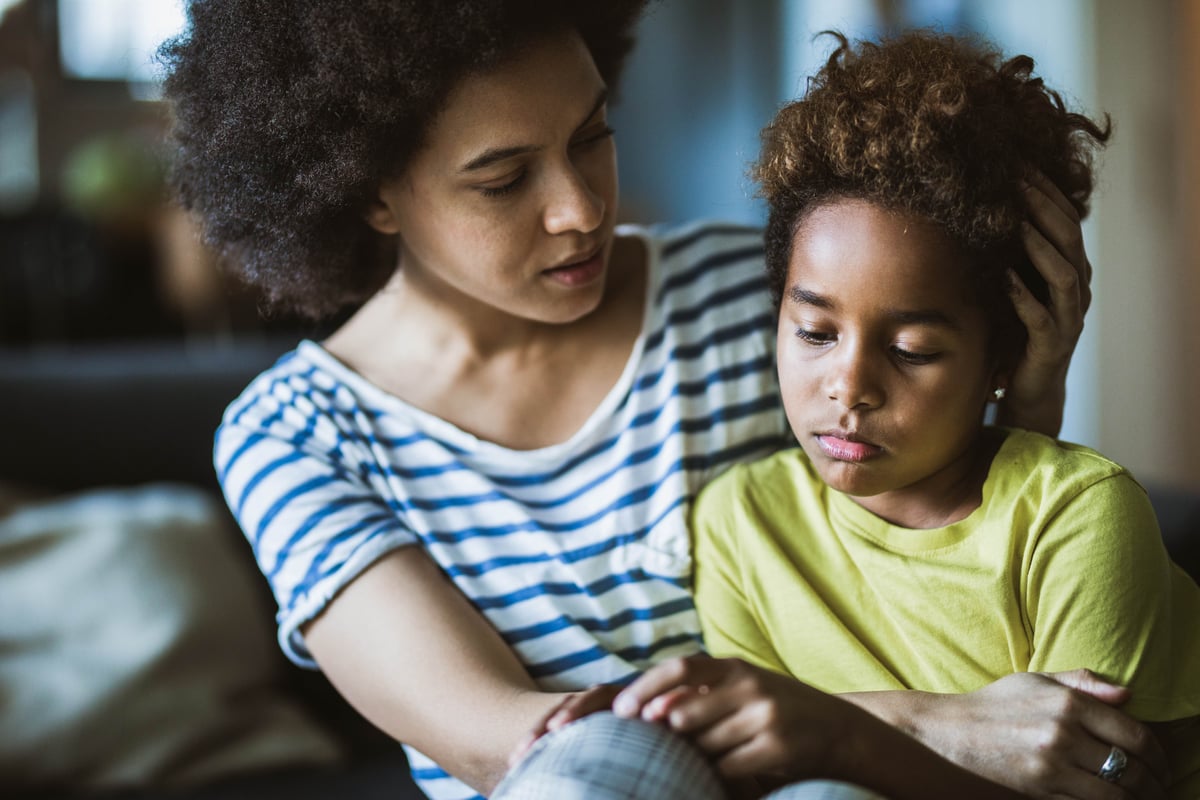
“What about the kids?” It’s the natural first question to ask when you’re considering a divorce or separation, and with 48 per cent of all divorces involving kids, it’s a question being played out in households across the country every week.
It’s the conversation every parent dreads, but when you and your partner have decided to separate or divorce, your kids need to be told and included in the discussion.
Watch: Jennifer Aniston talks about her divorce with Ellen. Post continues below.
While I’ve been married for 30 years, my career in family law has involved countless divorces and separations. From experience, I can tell you that it’s never an easy time, but there is a way to tell your kids about what’s happening in a supportive manner that reduces unnecessary upset or disruption.
Here’s how.
Work as a team.
It’s crucial to have a joint plan in place before either of you discuss the separation with your children.
Collaborate with your ex-partner in agreeing on when and where you will have the conversation and what information or ‘shared story’ you will tell your children. The last thing you want is to contradict each other, or get upset in a ‘he said, she said’ argument when telling the kids about your separation.
Choose the right time and place.
Plan for both of you to be present for it if possible, and choose a known place, at a time without interruptions, time pressures or distractions. You want to create a safe environment where they can express themselves freely.

